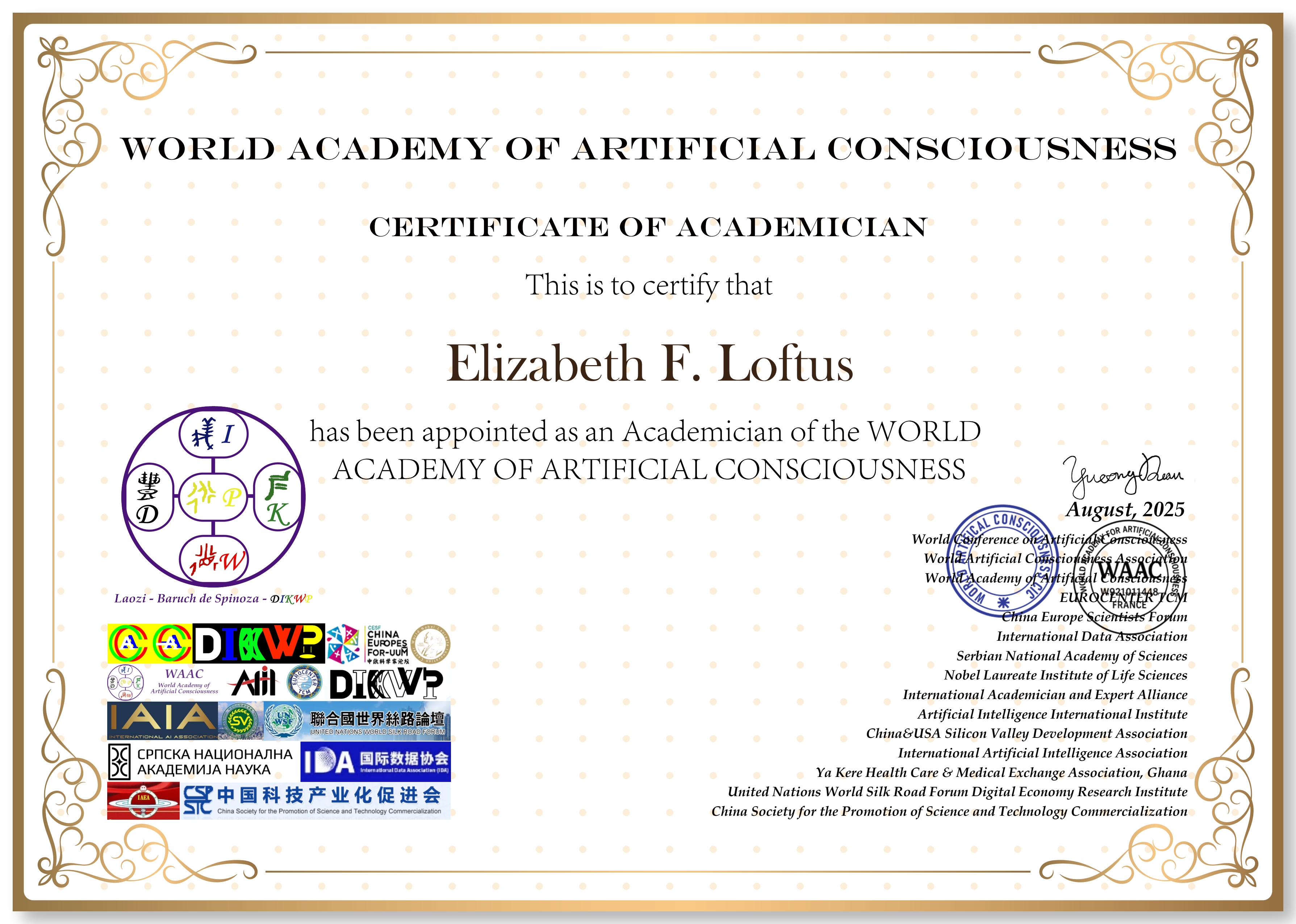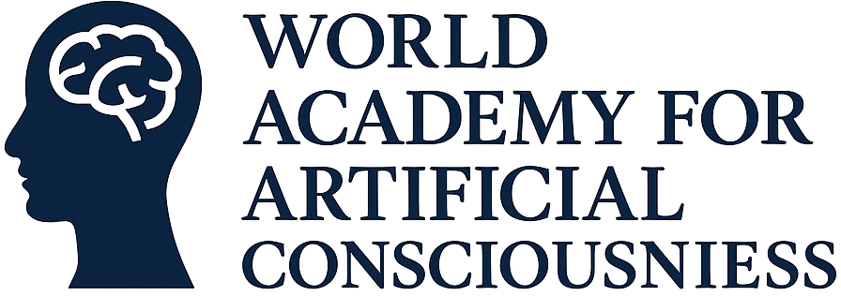
We are pleased to announce that, in recognition of her foundational contributions to human memory malleability and eyewitness testimony, Professor Elizabeth Loftus of the University of California has been elected an Academician of the World Academy for Artificial Consciousness.

A leading figure in contemporary memory science and legal psychology, Professor Loftus has systematically revealed the misinformation effect and the plasticity of memory: post-event information and leading questions introduced after an incident can alter both the content of a person’s recollection and their confidence in it. The classic “car accident wording” experiment by Loftus and Palmer first demonstrated, with rigorous experimental paradigms, how linguistic cues reshape eyewitness recall and judgment. Over the ensuing three decades, further research delineated the conditions under which individuals are more or less susceptible to misleading information, and explored false-memory induction paradigms—such as the “lost in the mall” technique—in healthy populations, along with their ethical implications. This body of work has profoundly influenced investigative procedures, the assessment of eyewitness testimony in courts, and public policy worldwide.
- Global Collaboration and Academic Ecosystem
Academicians of the World Academy for Artificial Consciousness hail from institutions such as Harvard University, the Massachusetts Institute of Technology, the University of Cambridge, the University of California, the French Academy of Sciences, the University of Padua, the University of Queensland, Columbia University, and the University of Exeter. Honorary Academicians come from a wide range of countries and regions, including the United States, the United Kingdom, France, Germany, Italy, Sweden, Canada, Australia, Spain, and China. In addition, leading scientists from prominent research institutes and technology companies—such as Google, the Allen Institute for Brain Science, and ZEEKR—also participate.
- About WAAC

The World Academy for Artificial Consciousness (https://www.waac.ac/) is a global academic institution established in Paris in 2025. Its mission is to advance frontier research and international collaboration in artificial consciousness through the integration of science, technology, and philosophy. The Academy publishes open research, policy recommendations, evaluation standards, and more. The current President is Academician Yucong Duan, and the Secretary-General is Dr. Yingbo Li. The Honorary Academician List: On May 3, 2025, WAAC released its first batch of Top 100 Honorary Academicians, recognizing scholars who have made foundational or leading contributions to the theory of artificial consciousness.
